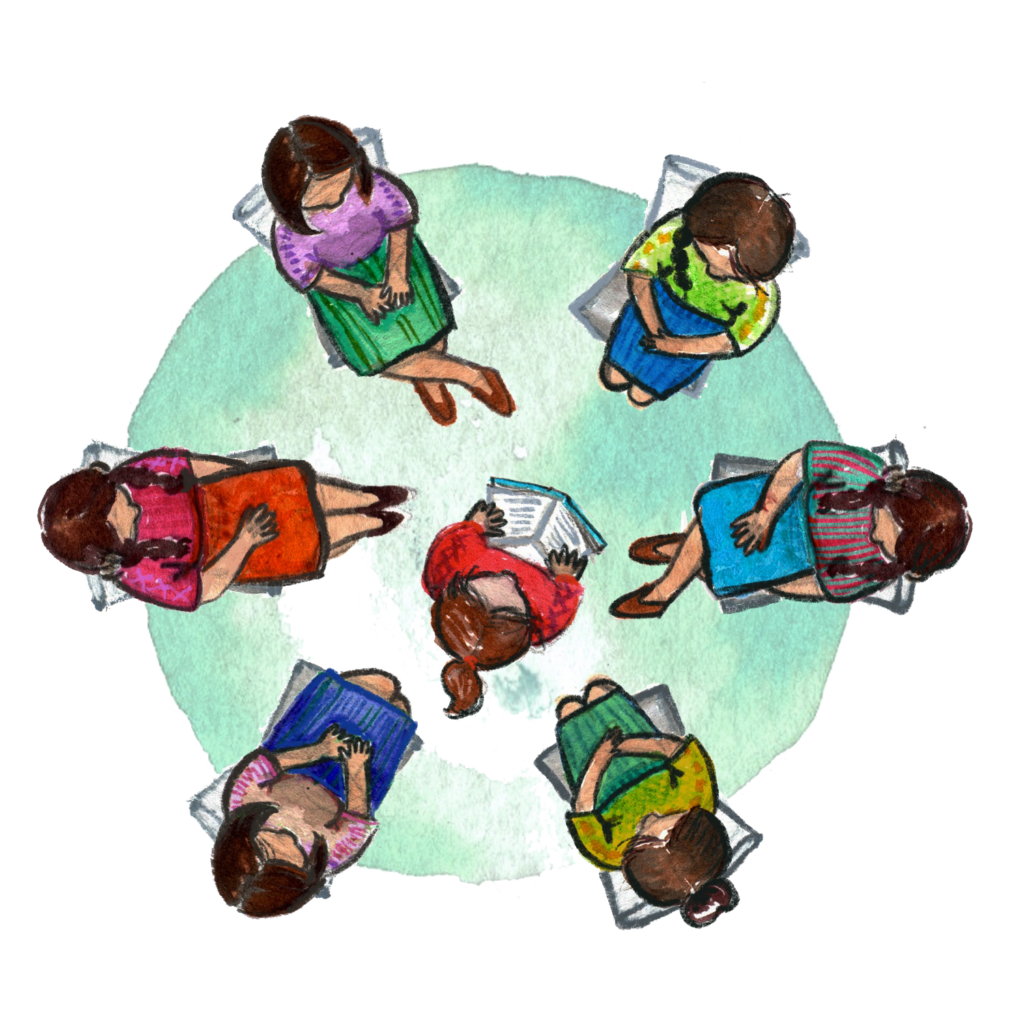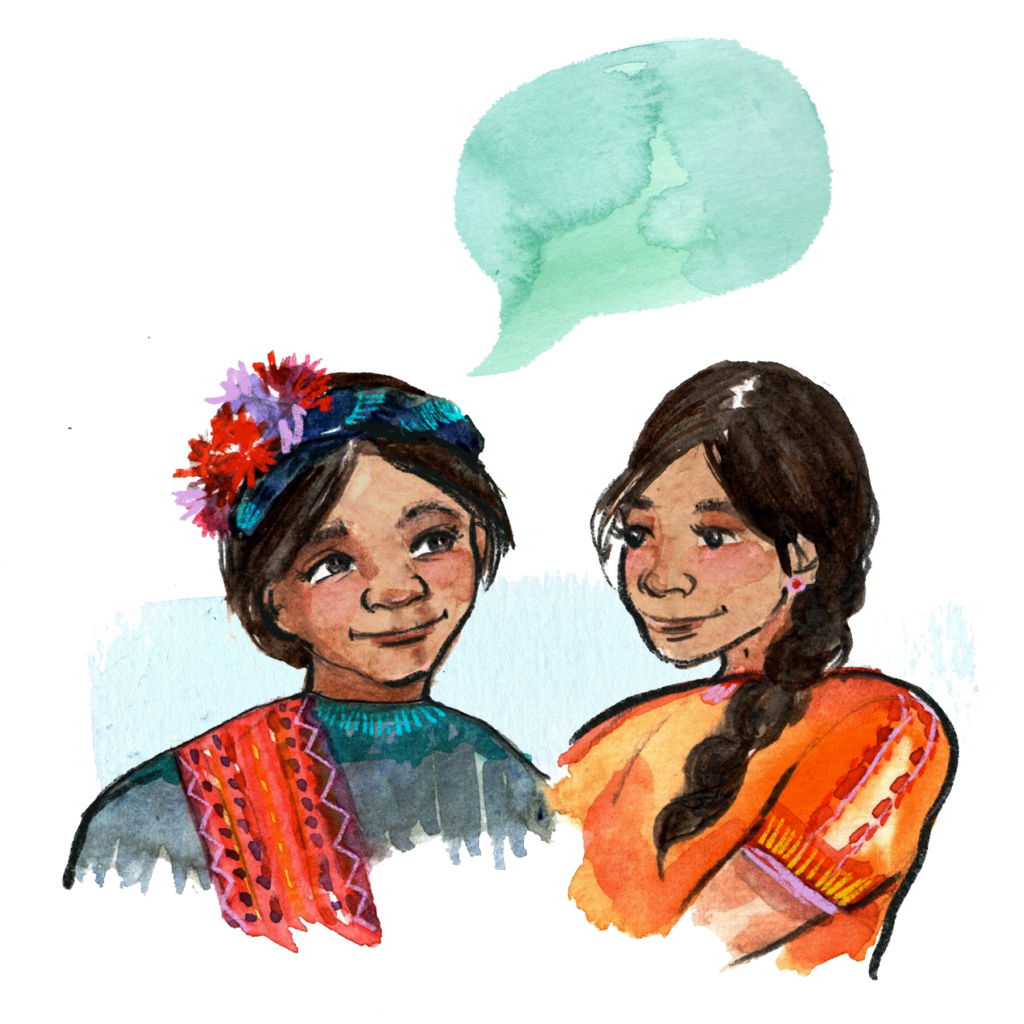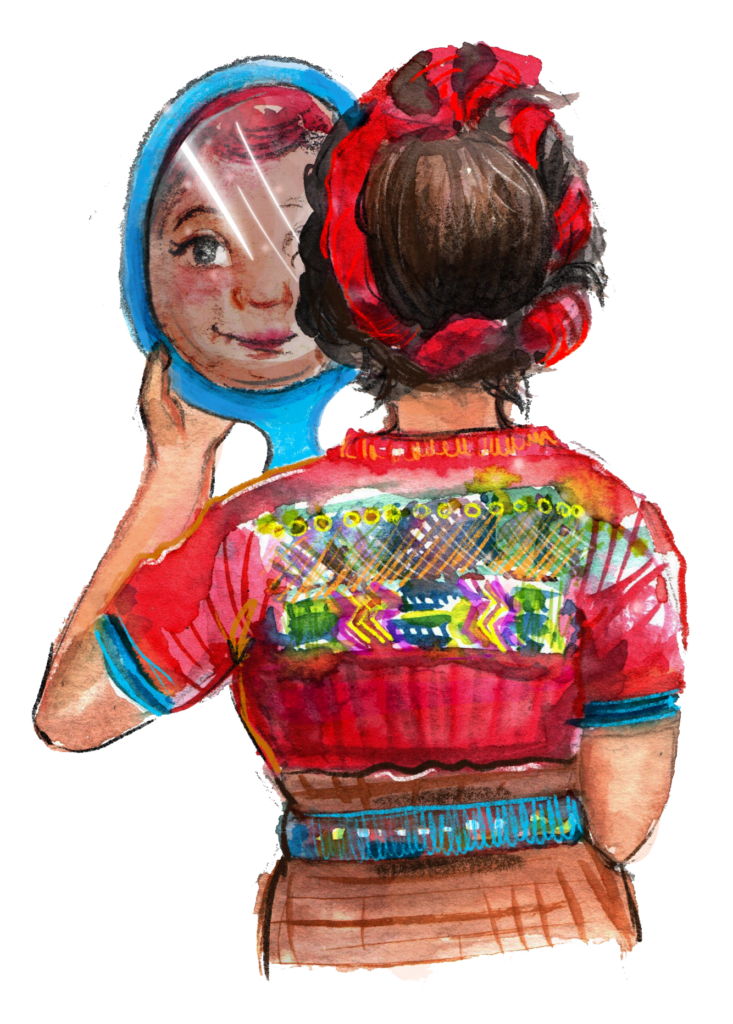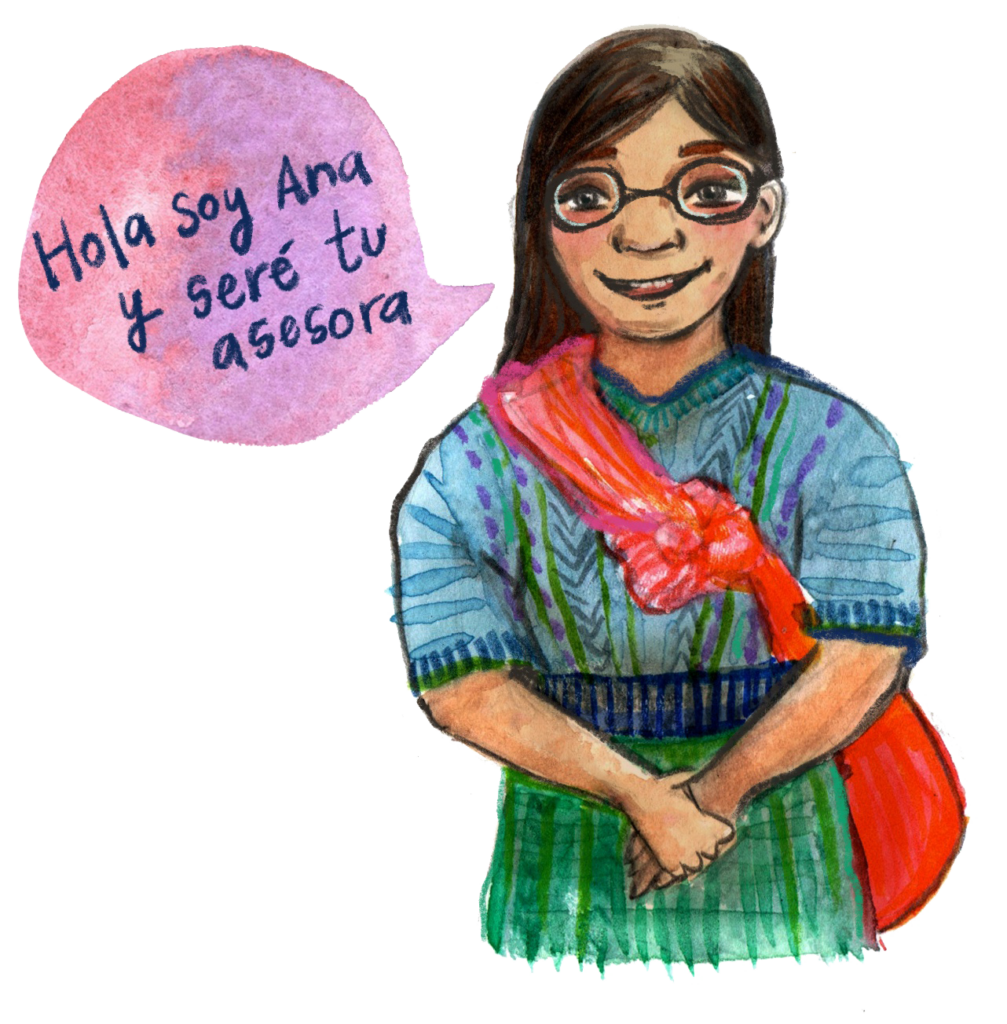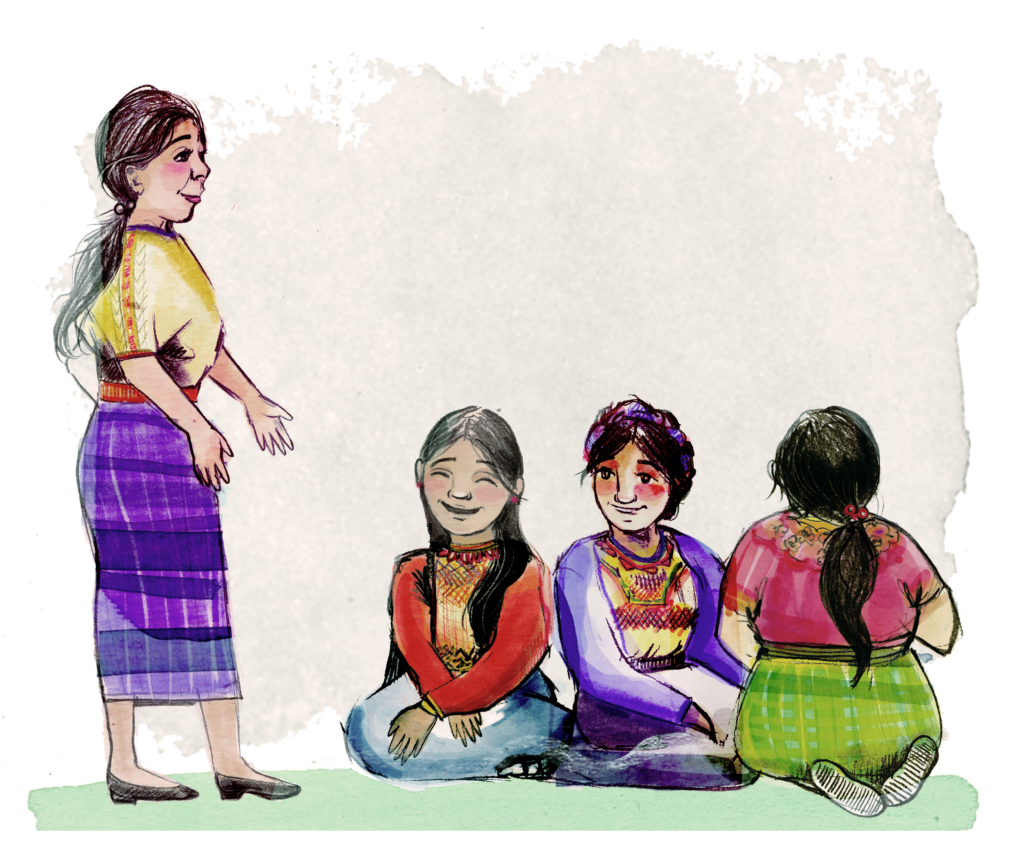2022 Annual Report
Indigenous Women Transforming Communities
Leading for a Lasting Impact
Our Mission
The Women’s Justice Initiative (WJI) improves the lives of indigenous Guatemalan women and girls through education, access to legal services, and gender-based violence prevention.
Letter from Our Leadership
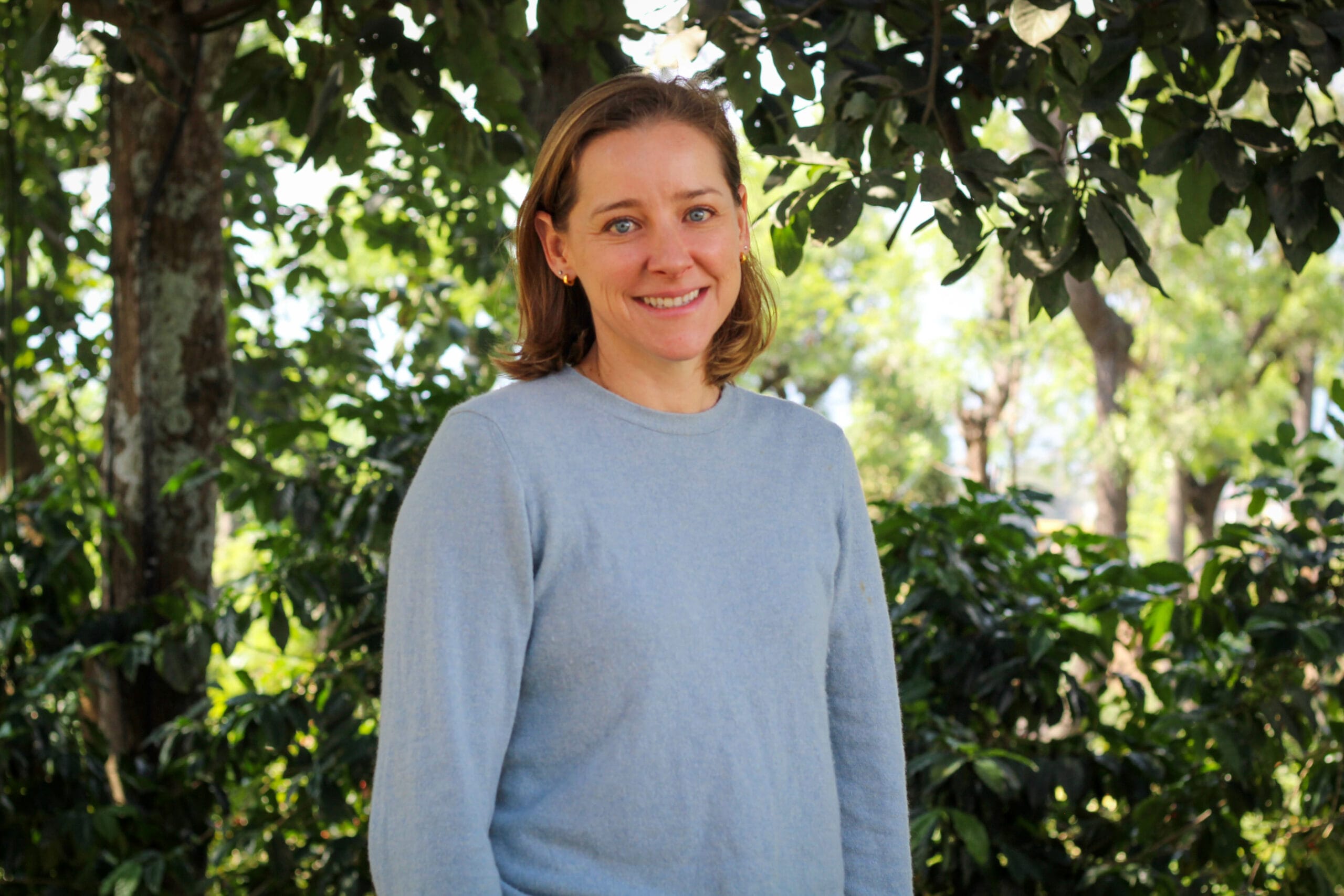
Kate Flatley
Executive Director
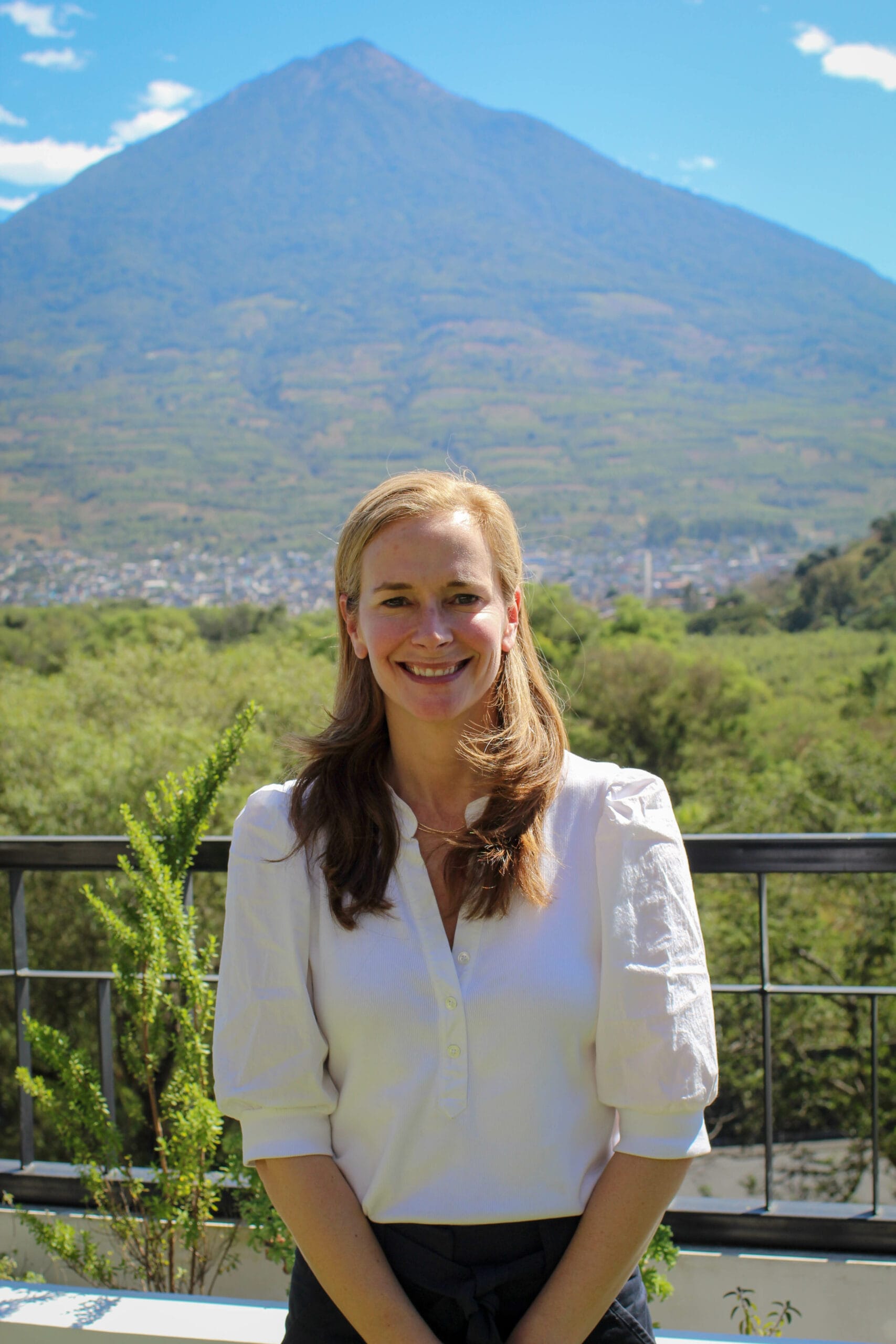
Clara Ferraro
Board President
Dear Friends,
We are thrilled to share that 2022 was a year of progress and growth in which we hit extraordinary milestones and celebrated a Decade of Success!
In 2011, we began as a team of two, working in one community with fifteen participants. To date, more than 10,000 women and girls have participated in our programs, and we have reached nearly 50,000 individuals directly. In 2022 our team grew to thirty-three staff members and our work now spans across three countries. In Guatemala, we provided 1,428 free legal services to over 800 women. More than 1,300 women and girls participated in our programs, and we welcomed twenty-two new women to our network of Community Advocates. Regionally, we collaborated with individuals from 155 civil society organizations, sharing knowledge and technical assistance.
As a team, we celebrated the achievements of the last decade and began to define ambitious organizational goals for the future. Recognizing that sustainable growth must be guided by local expertise and informed by our past experience, last year we created an Impact and Learning team which is dedicated to ensuring that our work has a lasting impact that will transform communities.
We are filled with immense gratitude as we reflect on the work we have accomplished together in our ongoing mission to end gender-based violence and improve the lives of women and girls in rural, indigenous communities. While we celebrate our accomplishments from the last ten years, we eagerly look forward to the next decade.
Thank you for being a critical part of our success.
Sincerely,
Kate and Clara
Scroll to Read More
The Context: Guatemala
Guatemala has one of the highest rates of violence against women and girls in the world. Rural, indigenous women are disproportionately impacted by violence due to social isolation, discrimination, weak public institutions, and limited access to resources.
Indigenous Guatemalan girls face an especially high risk of child marriage as gender norms and a lack of educational and economic opportunities push young girls to get married.
Where We Work
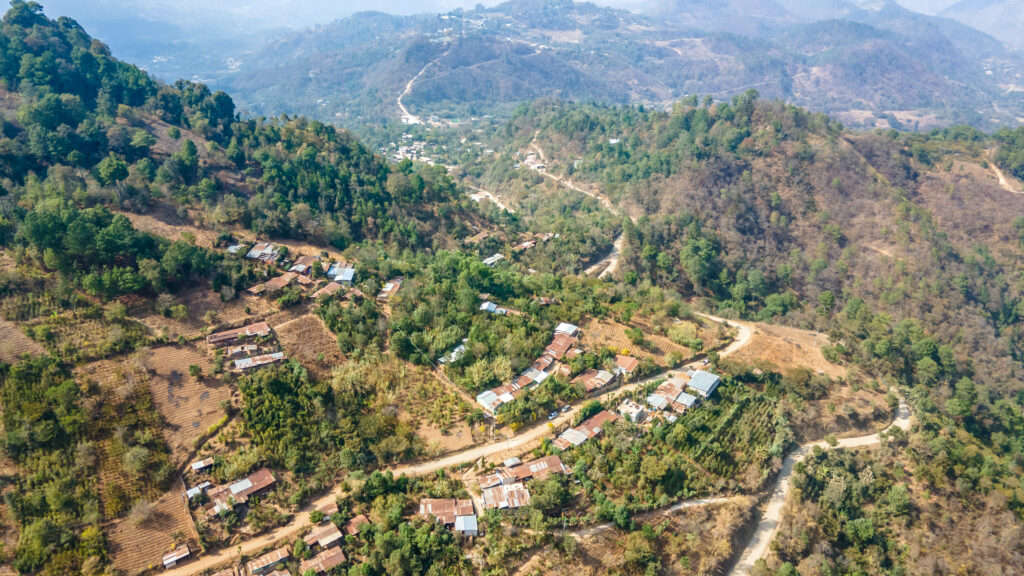
WJI works in 73 rural, Maya Kaqchikel communities across six municipalities in Guatemala. Through its regional expansion, WJI is sharing its methodology and providing technical assistance to civil society organizations in Honduras, Mexico, and three additional regions of Guatemala.
WJI Program Participants
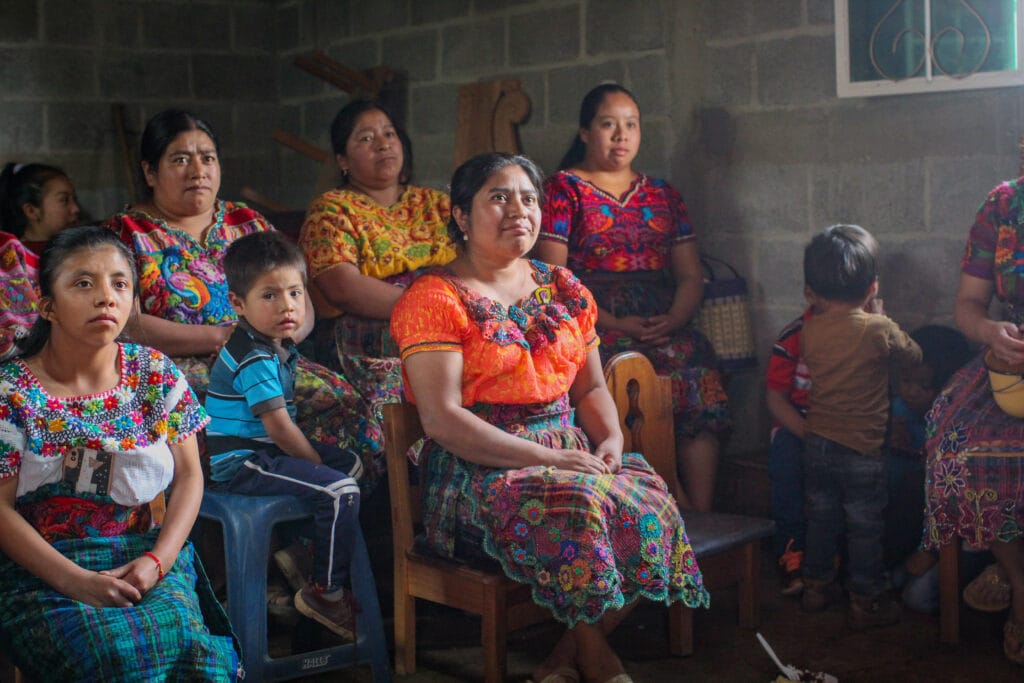
On average, adult participants were married by age 20 and had their first child by age 21.
15% of mothers are single parents.
94% work in the informal labor market.
79% speak Maya Kaqchikel.
What We Do
2022 Highlight: 10-Year Anniversary Event
In 2022 WJI celebrated a Decade of Success. We commemorated the occasion with members of our team, our dedicated board, and new and long-standing partners.
Our inspiring honorees, Luis von Ahn and Kim Koopersmith, are two trailblazers and leaders in their industries, dedicated to improving the lives of women and girls and promoting social justice.
We are so grateful to everyone who helped make our anniversary, and the last ten years, a resounding success!
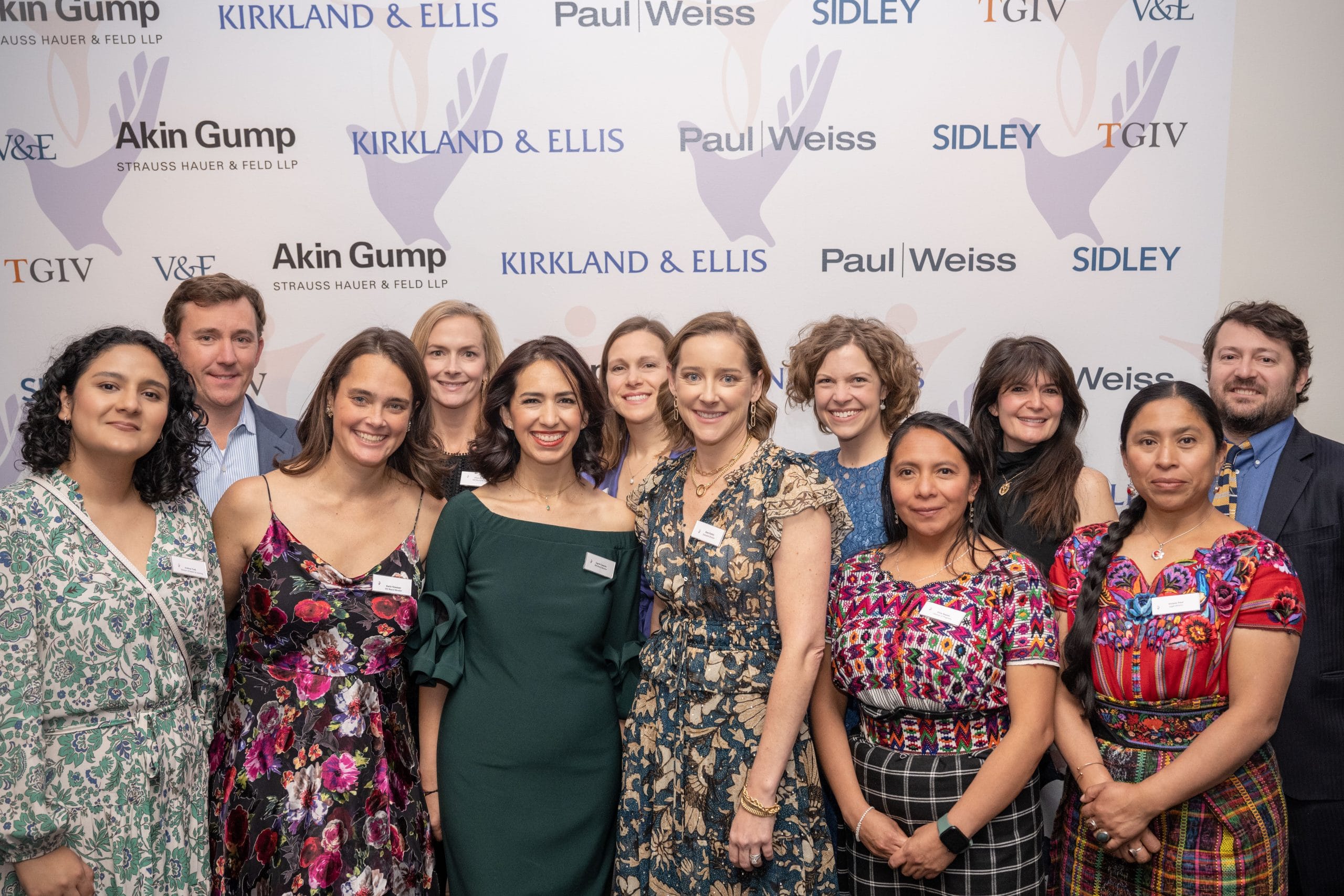
2022 Impact Statistics
0
women, men, and girls benefitted from WJI’s programs.
0
adolescent girls and their mothers gained knowledge and skills to prevent child marriage and gender-based violence.
0
women graduated from WJI's Women’s Rights Education Program.
0
women received free legal services from WJI.
0
women completed their two-year training to become Community Advocates.
0
police officers, service providers, and local leaders were trained in adequate responses to violence.
Regional Expansion Highlight
WJI in Mesoamerica
WJI is a regional partner with the Women’s Economic Empowerment in Mesoamerica Initiative, funded by USAID, which aims to reduce gender-based violence and human trafficking. WJI provides training and technical assistance to community-based organizations in Mexico, Guatemala, and Honduras, helping them to adapt WJI’s legal empowerment methodology to their local context. Collaborating with sustainable, women-led initiatives across the region builds upon WJI’s success creating stronger, safer communities in Guatemala and sets the foundation for regional growth.
Regional Expansion Highlight
Rosa Xocoxic (Paralegal) and Rut Curruchich (Outreach Coordinator) lead the project. The women boast thirty years of combined experience in gender-based violence response and prevention, women’s rights advocacy, and community development. Rosa and Rut understand the unique barriers that indigenous women face, both through personal experience as Maya Kaqchikel women and through their extensive work serving indigenous communities.
Regional Expansion Highlight
Rosa says, “It’s been a real challenge, though a rewarding one, to work in diverse contexts.” Most recently, through comprehensive legal research and conversations with local experts, Rosa and Rut adapted WJI’s methodology to reflect the specific experience of indigenous women in Southern Mexico. “Mexico has a more advanced legal framework regarding women’s rights, but rural, indigenous women there face barriers to accessing justice.”
Rosa and Rut report that the women who participate in the workshops are enthusiastic to learn about their rights, and willing to discuss the violence they see in their communities. Rut states, “We have not gone a single day without participants sharing with us about cases of violence.”
Regional Expansion Highlight
Rosa and Rut look for solutions based on local practices. For example, women in Oaxaca mentioned the traditional practice of tequio, where members of indigenous communities donate their time or resources to improve the community. Rosa and Rut immediately recognized tequio as analogous to a Maya Kaqchikel equivalent, called faena. From there, the WJI team and the Oaxacan women launched a plan to incorporate legal services and accompaniment into this traditional practice.
Regional Expansion Highlight
WJI’s proven methodology underscores the importance of seeking solutions based on culturally relevant practices and the knowledge of community members. Designing effective programming rooted in local expertise and experience is what makes WJI a regional leader in advancing justice for indigenous women and girls.
Setting Precedents
WJI’s Legal Team Triumphs in School Sexual Abuse Case
In many of the rural, indigenous communities where WJI works, sexism and discrimination prevent survivors of violence from reporting abuse or accessing the legal system. Guatemala has some of the highest rates of impunity for violence against women in the world – 98% of sexual assault and femicide cases go unpunished. In 2022, WJI’s legal team won an unprecedented judgment, representing an eleven-year-old girl, who was sexually assaulted by her teacher. The case demonstrated to the survivor and the community that the law can be a powerful tool, and that sexual abusers can be held accountable for their crimes.
Setting Precedents
Upon learning about the assault from her daughter, the mother of the young girl immediately reported it to the school director. Instead of taking action, the school pressured her to stay silent. Individuals approached her with bribes trying to convince her not to report the assault, but she had no intention of being silenced by her daughter’s abuser and sought assistance from WJI. With WJI’s guidance and legal accompaniment, the mother and daughter reported the crime to law enforcement.
Setting Precedents
Throughout the criminal trial, the family faced criticism and were ostracized by their community. They were told to leave their home, and the mother was ridiculed for “exaggerating” what happened to her daughter. Her daughter faced bullying at school and each hearing proved emotionally taxing. Many times, the mother wondered if the trial was worth it.
Setting Precedents
With WJI’s help, the mother and daughter stood firm in their decision to seek justice. WJI’s legal team provided comprehensive legal support, including accompaniment to submit evidence for the trial, cross examination preparation, legal advice related to process, and referrals to receive psychological counseling. The mother credits WJI’s emotional and legal support as the reason they continued with the trial despite the backlash they received.
Setting Precedents
In October 2022, the court found the teacher guilty and sentenced him to 11 years in prison, the maximum sentence for the crime and the defendant was ordered to pay reparations to the survivor. The judge also mandated that the local Ministry of Education train administrators, teachers, students, and parents on recognizing and reporting sexual violence.
As Women, We Matter: Fostering Leadership
Bety Oxi García:
Community Mayor
Maya women continue to be excluded from political participation in Guatemala; 20% of the recently elected Congress is composed of women, of which only one is an indigenous woman. WJI builds women’s leadership skills, confidence, and knowledge of their rights, so that more women can participate in local decision-making, begin to shift social norms, and transform their communities.
As Women, We Matter: Fostering Leadership
Every year, rural Guatemalans elect a mayor to oversee and represent their communities. Bety Oxi’s husband was elected to the position but left the country shortly after and named Bety to serve in his place. Bety, a Maya Kaqchikel woman and a graduate from WJI’s Women’s Rights Education Program, became the first woman from her community to hold the position.
As Women, We Matter: Fostering Leadership
As the only woman among eleven elected officials, Bety’s success in the role illustrates what women can accomplish when they feel empowered to participate in leadership roles. Bety says that recognizing her self-worth is one of the greatest lessons learned from WJI’s workshops, “as women, we matter.” She notes that before participating in WJI’s programs, she believed she had no value.
As Women, We Matter: Fostering Leadership
Machista and patriarchal attitudes are prevalent in rural Guatemala and for Bety, occupying a public position has been a challenge. She has faced criticism that targets not just her abilities as a leader, but the simple fact that she is a woman. She says that if she had not received training from WJI, she would have never been brave enough to serve in public office. A testament to her determination, Bety has built strong relationships with her male colleagues, who support and encourage her.
As Women, We Matter: Fostering Leadership
Bety is succeeding in a role traditionally reserved for men and she has done so with confidence and courage. She says she feels fortunate that women in her community now see her as a role model.
“Women look at me and think that they can do it too, they get excited and say that they think about running for public office.”
Cultivating Relationships, Strengthening Institutions
Interview with the District Attorney in San Juan Comalapa
WJI partners with government officials and service providers to strengthen referral pathways for survivors of violence and to improve resources for rural, indigenous women. In San Juan Comalapa, WJI has established a valuable relationship with the public prosecutor’s office. WJI sat down with the head of the office, District Attorney David Rosales López, who reflected on the importance of the services provided by WJI and the impact generated by building the capacity of local institutions.
Cultivating Relationships, Strengthening Institutions
WJI invests in relationships with local authorities and community leaders, which strengthens the coordination among entities and improves the municipalities holistic response to survivors of violence. District Attorney López views WJI as an indispensable resource for the municipality, stating “WJI is well known in rural communities…and is recognized for its work with government institutions and organizations in the municipal protection network… Community leaders refer women to WJI and women who don’t have economic resources know they can get free legal help.”
Cultivating Relationships, Strengthening Institutions
“WJI helps women who are trapped in cycles of violence, women who need personalized attention, and whose financial means limit their ability to hire an attorney,” explains López. When women seek assistance from government entities they face many challenges, including limited services, linguistic barriers, and bureaucratic processes. WJI’s presence means that these offices can now refer women to an organization where they receive support from women who speak their language and who can help them navigate a complicated judicial system. “It’s important for women to know that they are not alone.”
Cultivating Relationships, Strengthening Institutions
López believes patriarchal social norms are one of the biggest challenges to addressing violence against women and girls and acknowledges that the prosecutor’s office has a hard time raising awareness. “This society is machista, about 35% of the complaints we receive are related to gender-based violence. We do give talks about prevention, but it’s not prioritized.” López commends WJI’s focus on training municipal service providers and engaging men and community leaders, acknowledging that sensitivity training and education are key to preventing gender-based violence.
Cultivating Relationships, Strengthening Institutions
“WJI has had a positive impact on women and has been a great help to Comalapa,” not just ensuring that women can protect themselves, but by shifting broader attitudes that will lead to transformative change.
Our Impact to Date
0
direct beneficiaries.
0
indirect beneficiaries.
0
community leaders, police, and government officials trained.
0
legal cases related to economic rights or violence against women.
0
women trained as leaders, mentors, and rights educators in their communities.
0
graduates from the Women's Rights Education Program.
0
graduates from the Adolescent Girls Program.
0
parents and community leaders gained skills to prevent child marriage.
Financials
2022 Ending Net Assets: $0
Thank You
We are deeply grateful for the steadfast support of our partners, board members, and donors. Your investment and belief in our mission make our work possible. Thank you for helping us envision a brighter and safer world for women and girls.
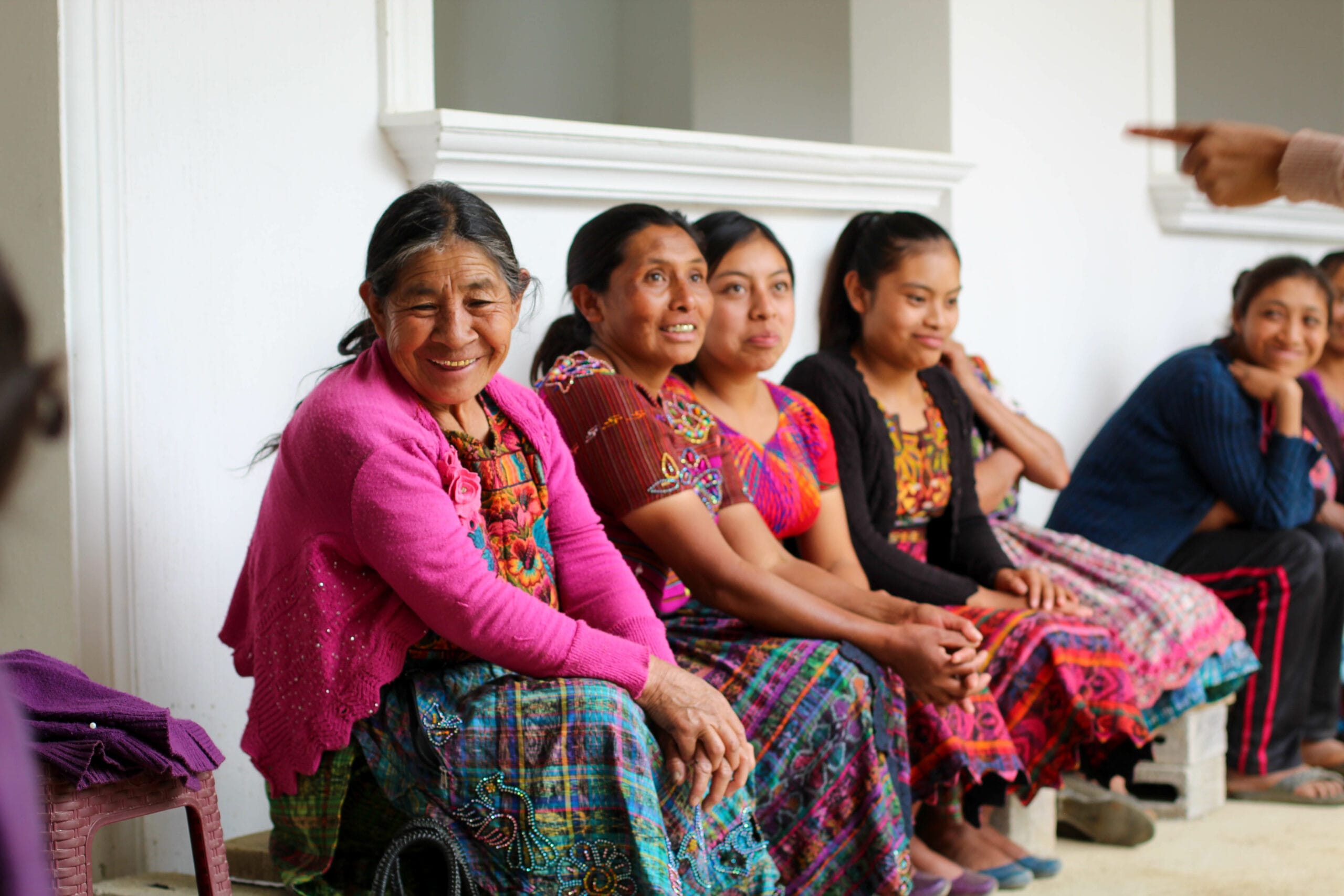
Photographer Credits
Paola Almengor
Jonathan Coronado
Allie Jorde
